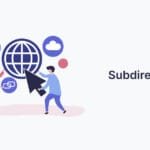Did you know that 83% of businesses believe AI is a strategic priority for their ventures today? When it comes to seizing the competitive edge in the digital jungle, content optimization using AI and AI-driven SEO strategies are not just advantageous – they are essential.
This new dawn of AI integration brings with it tailored AI prompt templates and examples, reducing the guesswork in content creation and SEO execution. Dive into the digital renaissance with us as we explore how artificial intelligence isn’t just shaping the future – it’s defining the present of content creation.
Understanding AI SEO
AI SEO uses artificial intelligence algorithms and tools to optimize website content and improve search engine visibility. AI can analyze vast data and make data-driven decisions to enhance your SEO strategies. By leveraging AI, you can gain valuable insights into user intent, identify relevant keywords, and generate engaging content that resonates with your target audience.
As search engines become more sophisticated, traditional SEO practices alone may not be sufficient to achieve the desired results. AI SEO provides a competitive advantage by leveraging advanced algorithms to interpret data and identify trends. By understanding user behavior, AI can optimize your content to align with search intent, improving your chances of ranking higher in search engine results.
With AI SEO, you can save time and energy on manual SEO tasks, allowing you to focus on strategic planning and content creation. By automating processes like keyword research, content generation, and performance analysis, AI empowers marketers to make more informed decisions and drive continuous improvement in their SEO strategies.
AI-Powered Keyword Research
AI for SEO purposes goes beyond traditional keyword research strategies. By leveraging AI-powered tools, you can gain valuable insights into keyword popularity, competition level, and user intent. These powerful tools can analyze vast amounts of data, helping you discover the most effective keywords to target.
| Feature | Traditional Keyword Research | AI Powered Keyword Research |
|---|---|---|
| Data Analysis | Manual, time-consuming, limited to a few tools and sources | Automated, comprehensive, analyzes vast amounts of data from diverse sources |
| Insights | Basic metrics like search volume and competition | Deep insights like user intent, semantic relationships, future trends |
| Efficiency | Slow and laborious, requiring manual processing | Fast and scalable, freeing up time for strategizing |
| Accuracy | Relies on subjective interpretation and experience | Data-driven, reduces human bias and error |
| Discovery | Limited to known keywords and competitor analysis | Uncovers hidden gems, long-tail keywords, and emerging trends |
| Competitor Analysis | Basic understanding of competitor keyword usage | In-depth understanding of competitor strategies and weaknesses |
| Content Creation | Keyword-focused, may miss user intent | User-intent driven, aligns content with audience needs |
| Adaptability | Static, doesn’t account for dynamic search trends | Continuously updates with evolving search behavior |
| Scalability | Difficult to manage large projects or multiple languages | Handles large projects and diverse languages with ease |
You can learn more about how to use AI for advanced keyword research in our detailed blog.
SEO Using AI: How to Perfect Your On-Page Optimization
Mastering on-page optimization using AI is essential for not only attracting your audience but also ensuring maximum visibility in search engine rankings. By implementing AI-driven content optimization techniques, you can splendidly align your content with the sophisticated algorithms of search engines like Google.
AI analyzes your content structure and optimizes HTML elements, such as meta tags, headings, and image tags, to improve your website’s overall performance.
1. Meta Tags Optimization
Meta tags provide search engines with essential information about your web page. AI tools can analyze your content and generate optimized meta tags, including title tags and meta descriptions, to improve your click-through rates and rankings in search engine results pages (SERPs). Here are some AI tools for meta tag optimization:
- Semrush Free Title Generator Powered by AI (Best for title tag)
- Ryan Robinson AI Powered Blog Title Generator (Best for blog title ideas)
- Ahrefs Free AI Meta Description Generator (Best for meta description)
- Frase Free Meta Description Generator (Another good tool for meta description)
| Meta Tag | Without AI | With AI |
|---|---|---|
| Title | Best Shoes for Running | XYZ Brand | Find the Perfect Pair of Running Shoes | XYZ Brand |
| Description | Shop our collection of shoes for running, including running sneakers, trail shoes, and more. XYZ Brand offers high-quality footwear for all your running needs. | Discover the best running shoes for every type of runner at XYZ Brand. Whether you’re a beginner or an experienced athlete, we have the perfect pair for you. |
Here’s the best prompt template for manually writing your title and meta description using an AI model like Bard or ChatGPT.
I want you to act as a very experienced content writer. Your goal is to help me create a highly optimized and attractive title and meta description for my blog that encourages users to click on it.
Create a comprehensive, informative, and engaging title and meta description for a blog post or article about [topic name] that is relevant to the target audience and optimized for the main keyword [keyword] according to Google and expert guidelines. Be sure to follow these instructions:
- Include primary keywords in the title and meta description.
- Write the title and meta description in a clear and concise way.
- Use strong and engaging language that encourages users to click on the article.
- Highlight the benefits of reading the article.
- You must write the title using less than 60 characters.
- You must write the meta description using less than 150 characters.2. Heading Tags Optimization
Heading tags, such as H1, H2, and H3, help search engines understand the structure of your content. AI can analyze your content and recommend optimized heading tags to improve the readability and SEO-friendliness of your web pages.
Here we’ve created the best prompt template for optimizing your article heading tags using AI.
I want you to work for me as a very experienced content writer. Identify and suggest modifications to the H1, H2, and H3 headings in the provided article to improve their attractiveness and SEO friendliness.
Context:
- Topic name: {inser your topic name or title}
- Target audience: {insert your target audiences}
- Keywords: {insert targeted keywords list}
- Content style: {insert your content style like formal or friendly}
Article content:
{insert your article content here}
Specific requirements:
- Clarity: Ensure headings accurately reflect the content they introduce.
- Conciseness: Aim for short, punchy headings that grab attention while conveying meaning.
- Keywords: Naturally integrate relevant keywords into the headings without keyword stuffing.
- Structure: Ensure a logical hierarchy of headings (H1 > H2 > H3) aligned with the content flow.
- Appeal: Craft headings that are both informative and intriguing, enticing readers to dive deeper.
Output:
- Provide only the revised H1, H2, and H3 headings for the article with justification for the proposed changes.
- If possible, highlight alternative variations for each heading to offer a choice.3. Image Tags Optimization
Image tags, including alt text and image titles, play a vital role in both SEO and accessibility. AI models like Google Bard and ChatGPT can analyze your images and suggest relevant and descriptive tags, ensuring that search engines and visually impaired users can understand the content of your images.
4. Content Structure Optimization
AI algorithms can analyze your content’s structure and provide recommendations on how to optimize it for a better user experience. This includes suggestions for paragraph length, bullet point usage, and formatting to enhance readability and engagement.
5. Improve Readability of Content
While AI excels at analyzing data and optimizing based on technical SEO factors, crafting truly readable content requires both the analytical power of AI and the human touch. But fear not, AI can still be your readability sidekick!
Utilize AI writing assistants to analyze sentence structure, complexity, and passive voice usage. Let them suggest alternatives and highlight areas for improvement. Remember, readable content isn’t just grammatically correct; it’s clear, concise, and engaging for your target audience.
Leverage AI to identify opportunities for simplifying jargon, breaking down complex concepts, and incorporating storytelling elements. Think of it as a collaboration: AI empowers you to identify readability roadblocks, while your human expertise ensures the content resonates with your readers on a deeper level.
Remember, readable content is not only SEO-friendly but also user-friendly, leading to higher engagement and ultimately, better results. Also after some of Google’s last major updates, it is giving more priority to the readability and easiness of content in content ranking factors.
- Free AI Paragraph Rewriter by Semrush (Best for improving readability)
- Free AI Paragraph Rewriter by Ahrefs (Best for changing the tone of writing)
AI for SEO Analytics and Reporting
Unlock the power of AI to enhance your SEO analytics and reporting. By utilizing AI-powered tools and algorithms, you can gain valuable insights, analyze vast amounts of data, and make data-driven decisions to optimize your SEO strategies effectively.
AI-powered analytics tools have revolutionized the way we approach SEO reporting. With their advanced algorithms, these tools can analyze data from various sources, such as website traffic, user behavior, and keyword performance, providing you with actionable insights and recommendations for improvement.
One of the key advantages of AI in SEO analytics is its ability to handle massive amounts of data. AI algorithms can process and analyze data at a scale and speed that surpasses human capabilities, enabling you to uncover valuable patterns and trends that might otherwise go unnoticed.
With AI-powered reporting, you can gain a deeper understanding of your website’s performance, track the impact of your SEO efforts, and identify areas for improvement. These insights can help you refine your SEO strategies, prioritize tasks, and allocate resources more effectively.
Surfer SEO and Microsoft Clarity are the best examples of tools that use AI technology to analyze and monitor your website to provide actionable suggestions for your content.
Moreover, AI algorithms can provide you with recommendations on optimizing your SEO strategies based on the analysis of data. These recommendations can range from keyword suggestions to content optimization techniques, enabling you to stay ahead of the competition and improve your search engine rankings.
Link Building Using AI Tools
Artificial intelligence (AI) and link building combine to create AI-powered link-building, a new way of doing things that’s shaking up the entire SEO industry. Not only does AI help in link-building by identifying quality link prospects, but it also provides deeper insights into how each backlink is performing. Let’s explore how using AI in link-building can revolutionize the digital marketing landscape today.
One of the reasons for this shift can be traced back to AI’s ability to analyze large amounts of data, which can reveal link building opportunities that might otherwise go unnoticed by humans. In addition, intelligent algorithms can now measure the relevance and authority of link sources with high accuracy, which is a key factor in building a strong backlink profile.
Another notable benefit is automated outreach efforts. In this case, AI not only simplifies communication with potential link partners but also personalizes it on a large scale, which dramatically increases response rates and enhances relationship building. AI also excels at backlink profile management and monitoring, providing alerts on harmful link patterns and recommending proactive measures to improve link health.
Backlinko says, “By using AI to create custom outreach messages, quality links are more likely to be acquired because the message resonates better with content creators and website owners.”
- Analyzing and identifying link opportunities
- Evaluating the quality and relevance of potential links
- Automating and personalizing outreach communications
- Monitoring backlink health and profile management
| Tool | Link Identification | Quality Assessment | Outreach | Backlink Automation | Backlink Monitoring |
|---|---|---|---|---|---|
| Majestic | Extensive link database | Trust Flow & Citation Flow metrics | No | Detailed historical data | Yes |
| Ahrefs | Backlink index with updates | Domain Rating (DR) & URL Rating (UR) | Limited functionality | Real-time alerts | Yes |
| SEMrush | Keyword-linked opportunities | Authority Score | Email outreach tool | Full backlink audit suite | Yes |
| Buzzsumo | Content insights and influencer identification | Buzz Score, social shares, and backlink data | Influencer outreach tools | No | Limited monitoring |
Deploying any of the mentioned AI-driven link-building tools not only propels the SEO strategies to new heights but ensures that every effort aligns perfectly with the quality standards demanded by modern search engines. As we navigate through the intricacies of AI and link building, it’s clear that the future of SEO lies in the smart integration of technology to build digital rapport and authority.
Best AI SEO Tools
| Tool Name | Features | Strengths | Weaknesses |
|---|---|---|---|
| Surfer SEO | – On-page optimization audits based on real-time SERP analysis – Content creation tool with suggestions for structure, keywords, and word count – Topic cluster builder | – Strong for keyword research and on-page optimization – User-friendly interface | – Lacks in-built plagiarism checker |
| ClearScope | – AI-powered content optimization suggestions based on intent and competition – Scorecard system to track progress – Content editor with keyword density and readability checks | – Excellent for in-depth content analysis and improvement – Advanced reporting features | – Lacks competitor backlink analysis |
| MarketMuse | – AI-driven content planning and strategy tool – Identifies content gaps and opportunities – Competitive intelligence and content performance insights | – Comprehensive content planning and creation capabilities – Strong research and analysis features | – Steeper learning curve than some tools |
| Frase | – AI-powered writing assistant with keyword suggestions and content outlines – Competitive analysis and content gap identification – Automated content creation options | – Strong focus on AI-generated content writing – Good for creating long-form content | – Can be expensive for smaller teams |
| Jasper (Formerly Jarvis) | – AI writing assistant with various templates and content types – Long-form content creation with topic suggestions and SEO optimization – Integrates with Surfer SEO and other tools | – Versatile AI writing tool for diverse content needs – Strong community and support | – Pricing structure can be complex |
| Semrush | – All-in-one SEO platform with keyword research, on-page optimization, and competitor analysis – AI-powered content insights and topic suggestions – Backlink analysis and tracking | – Extensive feature set for comprehensive SEO – Trusted brand with a long history | – Can be overwhelming for beginners – Complex pricing structure |
| SEO.ai | – AI-powered writing assistant with SEO optimizations – Real-time SERP analysis and content gap identification – Content editor with readability and keyword suggestions | – Affordable option for basic SEO writing needs – User-friendly interface | – Limited features compared to some competitors |
| Outranking | – AI-powered writing assistant with topic research and keyword suggestions – On-page optimization scoring and competitor analysis – Affordable pricing for solopreneurs and small teams | – Strong value for price – Good for basic SEO writing and optimization | – Limited to content creation and optimization features |
Conclusion
As we have explored in this article, the integration of artificial intelligence into SEO strategies is not just a fleeting trend – it’s the new frontier for digital marketing excellence. From enhancing keyword research with smart tools to refining content optimization processes, SEO using AI has proven to be a game-changer in the industry. Embracing AI technologies enables continuous SEO improvement, ensuring that strategies remain as dynamic as the search algorithms they aim to influence.
In an ever-competitive digital landscape, AI for continuous SEO improvement stands as a pillar of modern marketing efforts. By leveraging AI-powered analytics and insights, you can decipher and anticipate the nuances of search behavior. This proactive approach allows for the fine-tuning of campaigns and the adept navigation of SEO’s evolving terrain, keeping you one step ahead of the curve.
As you aim to fold AI into your SEO workflow, it’s crucial to adopt best practices that ensure success. This includes staying informed of the latest AI developments, selecting tools that align with your business objectives and training your team to harness the full spectrum of AI’s capabilities. By fostering a culture of innovation and agility, the integration of AI into SEO processes can drive substantial gains in visibility, engagement, and ultimately, business growth.
Remember, the future of SEO shines bright with AI, and by adapting to these changes now, you position yourself firmly at the forefront of this exciting evolution.
FAQs About AI SEO
What are the benefits of using AI for SEO?
AI enables automated keyword research, content generation, and optimization based on SERP and rich result guidelines. It saves time, enhances accuracy, and helps improve search engine rankings and organic traffic.
How does AI SEO consider SERP and rich result guidelines?
AI SEO algorithms consider various factors such as structured data, meta tags, schema markup, and content optimization techniques to align with SERP and rich result guidelines, increasing the chances of achieving better visibility and enhanced snippets.
Can AI SEO help with keyword research?
Absolutely! AI SEO tools can analyze keyword trends, competition, and user intent to identify relevant and high-performing keywords. This helps content creators optimize their content around the most effective keywords for better search engine rankings.
Does AI SEO guarantee higher rankings on search engines?
While AI SEO can greatly enhance your content’s potential for better rankings, it does not guarantee specific positions on search engine results pages. AI SEO is a valuable tool to optimize content, but other factors like domain authority and user experience also influence rankings.
What is the future of AI in SEO?
Buckle up, because AI is about to become the co-pilot of your SEO journey. In the future, expect even deeper integration, with AI personalizing user experiences based on data, predicting trends for proactive optimization, and automating even more SEO tasks. This means less manual work, smarter strategies, and a constant SEO advantage.
Can AI help me build backlinks?
Yes! AI isn’t just a content specialist, it’s also a link-building specialist. It searches the web for quality websites related to your niche, automatically sends out emails to potential link partners and even looks at your backlink profile to identify areas for improvement. As a result, link-building becomes more efficient, strategic and ultimately, more effective.
How can AI provide a competitive edge in SEO?
While others are stuck guessing, AI empowers you to see beyond the curtain. It analyzes your competitors’ strategies, pinpoints their weaknesses, and identifies untapped opportunities for your own SEO plan. This intel helps you stay ahead of the curve, refine your approach, and ultimately outrank competitors for that coveted top spot.





